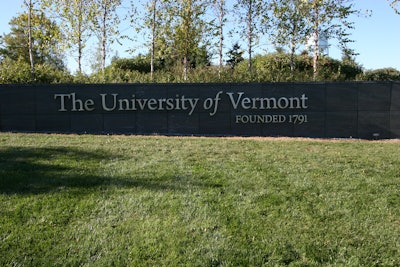The University of Vermont has received $9.3 million, which it will use to create an institute to help Vermont’s rural communities amid climate change and population shifts.
The Institute for Rural Partnerships – established with funds from the U.S. Department of Agriculture’s National Institute of Food and Agriculture – will start immediately. The effort was led by U.S. Sen. Patrick Leahy, D-Vt.
The goal of the institute is to be a space for the understanding of issues and opportunities, collaborative research, partnerships, support for a regional internship program, and work with similar institutes at the University of Wisconsin and Auburn University.
“Vermont, like all rural states, faces unique challenges that affect such important issues as transit, economic and workforce development, water quality, food supplies, infrastructure, and broadband connectivity,” Leahy said. “The University of Vermont (UVM) has long been a key player in the State, forging and expanding partnerships with public and private entities to identify and try to address many of these rural challenges. The Institute for Rural Partnerships at UVM will enable the University to continue to be a leader in the studies of rural challenges not only within Vermont, but the Nation. The Institute will help be a flagship for other states to form such partnerships as a comprehensive means of meeting complex rural challenges across the United States. As Chair of Senate Appropriations, I was proud to support UVM and am excited to see the incredible work that will be done by the University through the establishment of the Institute for Rural Partnerships.”
Dr. Kirk Dombrowski, UVM Vice President for Research and the project’s principal investigator, said the university will serve as a technology park of sorts, where partnerships with community-based groups looking for academic expertise will be fully supported.
“People will deal more effectively with the inevitable change that’s coming if they have the knowledge base, better data, and strong partnerships that the institute will facilitate,” said Dombrowski. “It’s a way to make a path forward and be part of a viable future, rather than resisting change at all costs.”














